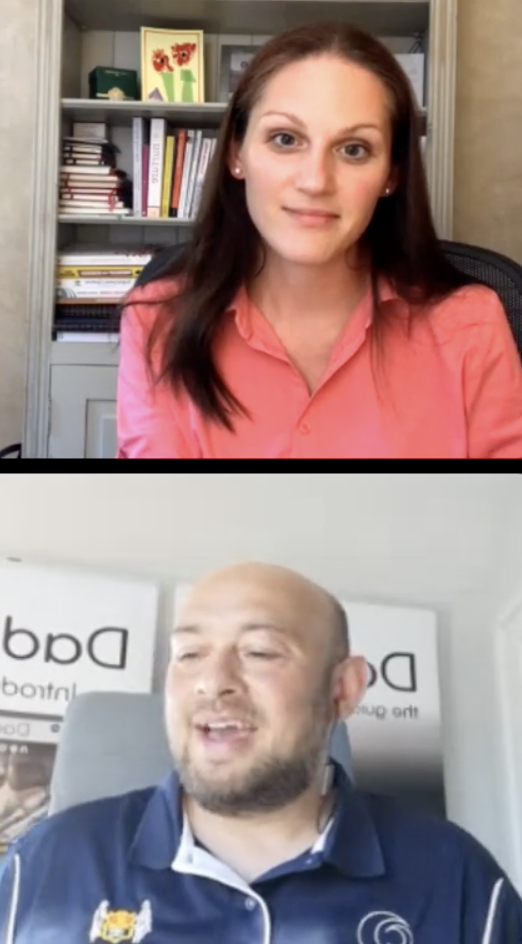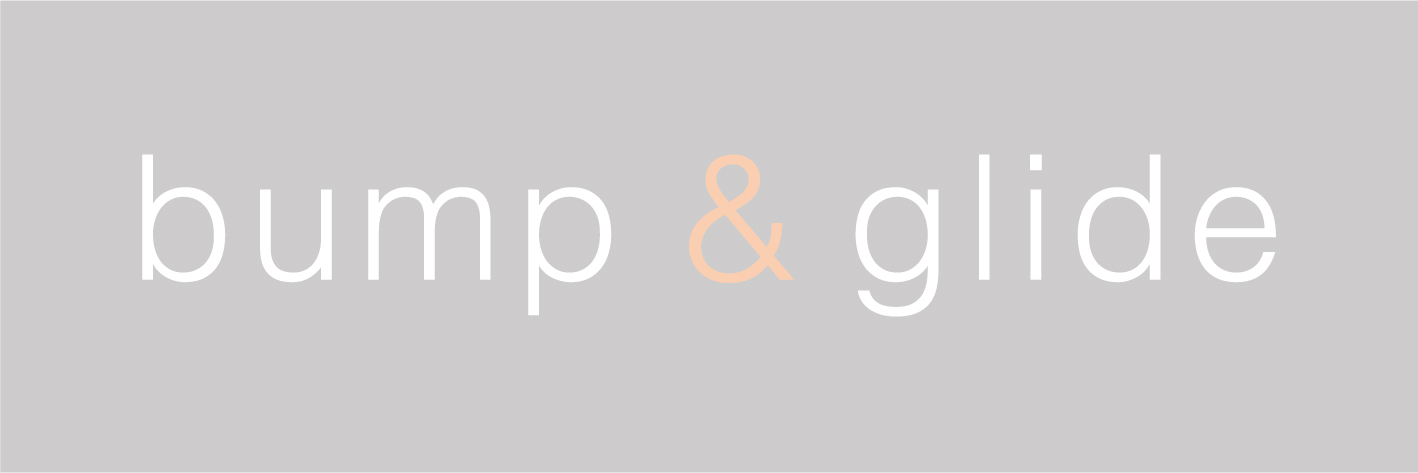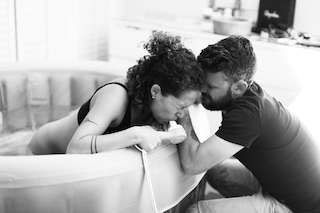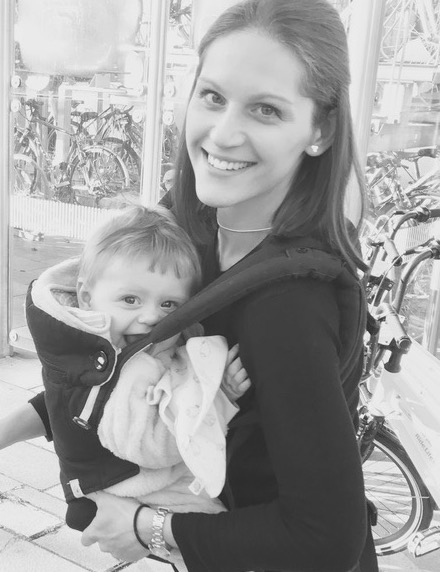
2021 Guest and Q&As, Parenting Advice, Q&A
Q&A: Serena Williams from bump & glide
Posted on 23rd July 2021
For today’s Q&A, we’re speaking with Serena Williams from bump & glide. You may recall that, a few weeks ago, Serena invited Julian onto her Instagram channel for a LIVE! where they chatted all things parenting and fatherhood, including the importance of fathers’ involvement, and how organisations like hers and ours can help parents through what can be a very stressful time.

Hi Serena. Thanks for taking the time to talk with us.
Thank you for inviting me to take part in your Q&A!
Can you start by telling us a bit more about bump & glide? What is it and what do you do?
bump & glide provides perinatal guidance from pregnancy through to the return to the workplace leaving women, birthing people and their partners more resilient, confident, focused and motivated at such a pivotal time in their lives and careers.
I’m very much the core of bump & glide and offer antenatal preparation courses using KG Hypnobirthing, postnatal preparation sessions, maternity mentoring and am also a Mental Health First Aider.
I see the perinatal period as a huge transition in a person’s life, a time where there isn’t just one element which is important, but several elements which all need to be taken into consideration. I tailor my sessions to each individual – and each couple – accordingly, keeping in mind how they’re feeling, their background, any previous experiences, how they like to learn and process new and important information.
So what’s your background and why did you decide to set up bump & glide?
Following a 12-year career in the corporate world, in HR and communication, and the birth of my two children, I found the support mothers and parents received from inside and outside the workplace wasn’t good enough.
The name ‘bump & glide’ came from the fact that, when a woman is pregnant, she physically has a bump, but also the perinatal period is like a bump in the road – of life as you knew it up to that point! The ‘glide’ element comes from the thought of a gliding movement. We can all start gliding from a similar point but we all glide towards a unique spot at our own pace, in our own direction, with a little help along the way from the breeze!
I wanted to represent the gradual and individual nature of adapting to parenthood. Everyone is on their own journey, in their own time.

You’ve mentioned that you’re also a Mental Health First Aider. What does this involve?
Yes, I trained as a Mental Health First Aider in 2019 after noticing that more people than I realised experience poor mental health at some stage in their lives. Being a trained Mental Health First Aider enables someone to recognise the signs of poor mental health in a person and know how to support them appropriately. A few months after completing my training, I actually asked someone who was struggling if they were feeling suicidal, something I don’t think I would have felt confident to do before.
Pregnancy can sometimes make the person giving birth – as well as the partner – anxious at times for a whole host of reasons. Knowing what to ask, how to listen non-judgementally, reassure someone and offer the support and signposting they need seemed a no-brainer to me at a time when people can feel quite vulnerable.
Giving people a safe space to talk and feel heard really is essential during this time.
Do you just work with mums-to-be and mums?
No. Whilst the idea for bump & glide came about from my own experience of becoming a mum, the overall support on offer needs to be improved for everyone involved in the journey: mums, birthing people, dads, birth partners and employers alike.
With the birth and postnatal preparation sessions, I work with both mums-to-be and dads-to-be/birth partners. As you know yourself, from the work you and Julian do and from being parents, having children and entering into the adventure of parenthood is more manageable if you have the support of someone close to you.
Can you tell us a bit more about your courses? What things do you consider to be some of the most important – but not always the most obvious – to include in preparing for birth and beyond?
In terms of preparing for labour and birth, I offer a 12-hour (4 sessions) Birth Preparation course or a 6-hour Refresher course (2 sessions) using KG Hypnobirthing (accredited by The Royal College of Midwives). My Postnatal Preparation sessions, to be done during the 3rd trimester of pregnancy, have been very successful with couples over the past year as well.
One of the most important things to consider regarding preparing for labour and birth is that you have options. This is something couples I work with don’t always realise until we talk about it together. Take the example of being offered an induction if you’re ‘overdue’; there is so much to delve into here regarding inductions and also what ‘overdue’ really means. People often don’t realise that they have a choice in what they accept and what they decline during labour and birth. But you only have options if you know what they are.
Some of the most important things to consider with regards to the postnatal period are rest, nutrition, support and communication. The whole experience is usually different to what people expect, so preparing for it by gathering as much factual and evidence-based information as you can will help alleviate some of the intensity of those early days and weeks!
Couples are often amazed at how obvious some things seem once we’ve talked about them, things that they wouldn’t necessarily have thought about had they not done a course.
You also offer a range of ‘tool kits’. What are these and how do they work?
bump & glide tool kits are bespoke packages which protect the wellbeing of parents during and after pregnancy, whilst promoting effective communication with their employer.
I will be sharing more on these soon!

What about dads and birth partners? How do your courses help them to prepare for this exciting – but also often terrifying – period in their lives?
Ah, the dads and birth partners! Do you know – one of the many things I absolutely love about what I do is experiencing the evolution of the dads’ and birth partners’ feelings, thoughts and reactions over the course of the sessions. There’s something so special about accompanying couples on this journey; it really is a privilege.
In terms of how my courses help them to prepare, my background in communication, having children of my own, training as a Mental Health First Aider and knowing what to ask, when to ask and how to listen properly really helps couples open up and share how they’re feeling. Some of my clients have said they felt like the sessions were like therapy and brought them closer together, which is so lovely to hear, as being a team going into this journey is something you want to aim for!
When people feel in a safe space, relaxed and listened to, they’re more inclined to hear everything that’s being said and take it all on board – but then this applies to life in general, not just the perinatal period!
During the sessions, dads and birth partners suddenly realise how important their role is in this whole experience, which can be pretty emotional! Fathers and birth partners gradually understand how they can support their partner during this physical, mental and emotional rollercoaster, and actually how much they have to do: they don’t just sit back in a chair in the hallway with a phone and a coffee waiting for it all to just happen, like we often see in the movies! They should be, and need to be, really involved!
What – from your training, expertise and experience – would you say are the most important things for a dad-to-be to be aware of and prepare for in relation to both his own and his partner’s mental health during the perinatal period?
I would say be aware of how you’re both feeling overall and, if you feel like things are getting on top of you speak up, talk to each other, or to a close relative or friend initially. This may sound obvious to someone reading this who has had a full night’s sleep but, to a parent of a newborn or a very young child, it’s not always easy to see or think clearly.
Nowadays, we put so much pressure on ourselves and often think: “I should be able to do this, I’ll just get on with it” or, due to the comparisons that come with social media images: “They seem to be coping brilliantly, so I should be able to as well“. Sometimes, though, a little extra support can be the help you need to thrive and not just survive. Parenting was never something we were meant to do alone – and by ‘alone’ I’m not solely referring to having a life partner, as some people are solo parenting – but with a support network around us.
I also often say to my couples to remember that neither one of them has done this before, they’re both learning as they go, so even on the exhausted days try to remember to be kind to each other and share what has worked well that day. There are a whole host of things to learn, so take it a day at a time, sometimes an hour at a time and celebrate the small wins each day.
Most of all, keep talking.

Now you know more about DadPad, can we ask you what you think of it?
DadPad is an absolutely brilliant resource for dads AND their partners. There is so much information surrounding parenthood nowadays that it can quickly become overwhelming, with (often conflicting) advice from so many different sources that having one place to find all the key information and links to look for further support is truly wonderful.
It’s something I mention to everyone I speak to whether they’re clients or not! Thank you for creating it; it’s fantastic!
Obviously, like all of us, you’ve been working through the pandemic and all the additional challenges it’s brought to parents-to-be, new parents and those supporting them. What things have stood out for you most during this time, and what lessons do you think we can learn for the future from this?
What has stood out for me is how, on the whole, people have come together and tried in any way they can to support one another. And also how the conversation around mental health has increased, which is very positive for us all.
In terms of lessons we have learned, I would say to be grateful for what we have, enjoy the small things and notice those around you more. You never know what people are going through, so be kind. I said to someone recently that we’ve all been in the same ‘war’, but we’re all fighting different battles.
Finally, what are your goals for bump & glide over the next few years?
Over the next few years, my goal with bump & glide is to keep working on ways to reach more people and pass the message on that the period of pregnancy, labour and birth – although brief – is incredibly intense and shouldn’t be experienced alone.
I will be working closely with organisations with the bump & glide tool kits as well.
Huge thanks to Serena for finding the time to share all this information with us.
Further information:
To find out more about Serena and bump & glide:
Website: https://www.bumpandglide.com/
Facebook: https://www.facebook.com/bumpandglide/
Instagram: https://www.instagram.com/bump_and_glide/

